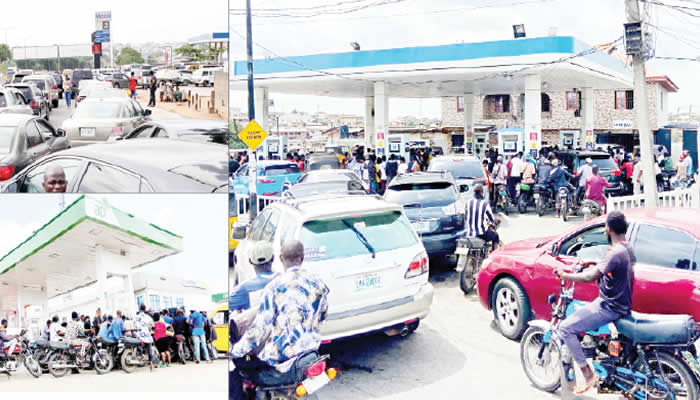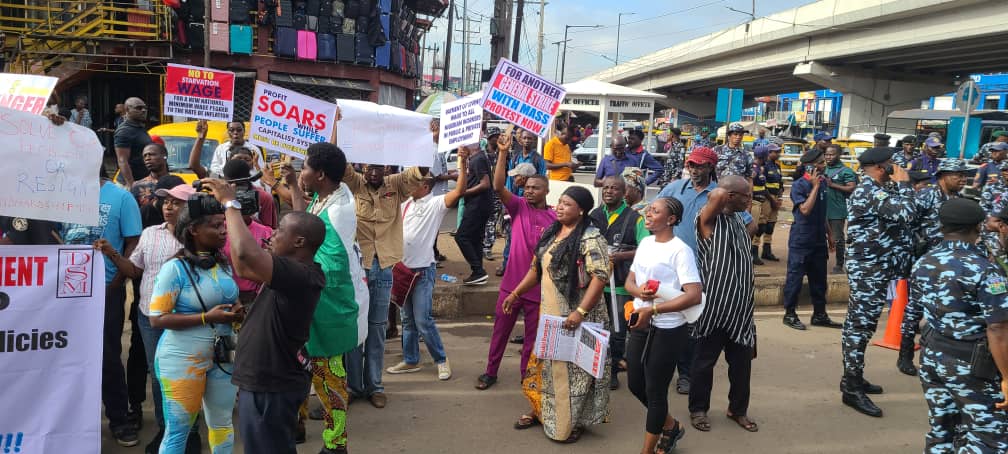Despite reassurances from the Nigerian National Petroleum Company Limited (NNPCL) that fuel scarcity issues had been resolved, many Nigerians, especially in Lagos and other parts of the country, are still grappling with difficulties in accessing Premium Motor Spirit (PMS). Several filling stations remained closed over the weekend, exacerbating the situation.
The NNPCL reportedly directed fuel trucks to prioritize servicing the Federal Capital Territory (Abuja) before other regions, raising concerns that the scarcity may worsen in Lagos and parts of the South-West like Ogun, Oyo, and Osun. This directive has led to a significant number of trucks heading to Abuja, leaving other areas underserved.
Industry sources indicate that the NNPCL is rationing fuel allocation to depots, reducing the supply from 10,000 to 5,000 metric tonnes. This, coupled with erratic supply, has contributed to persistent fuel queues and scarcity in the South-West.
The scarcity is attributed to the NNPCL's challenges in importing enough fuel at the moment, including disruptions in importation and logistical glitches. The NNPCL's efforts to manage these disruptions have not been sufficient to meet the demand.
As a result, fuel prices have increased, and long queues are observed at filling stations across affected states. Many filling stations in Ogun State are not dispensing fuel, while operational ones sell at exorbitant prices, with black marketers taking advantage of the situation.
In response to the scarcity, the National Vice President of the Independent Petroleum Marketers Association of Nigeria (IPMAN), Hammed Fashola, expressed hope that the situation would improve between Monday and Wednesday, particularly in Lagos and Ogun, based on assurances from the NNPCL.
However, Fashola acknowledged that the queues in Abuja might persist due to the prioritization of fuel supply to the capital. The NNPCL has assured that efforts are being made to address the challenges and normalize the supply chain.
Despite these assurances, the scarcity has impacted transportation and daily activities in affected states, with commuters experiencing difficulties and increased transport fares. The situation has also raised concerns about the efficiency of the fuel supply chain and the need for long-term solutions.
Marketers have resumed loading PMS at depots in Lagos, Port Harcourt, and Warri, indicating a potential easing of the scarcity soon. However, the challenges in the fuel supply chain highlight the need for better coordination and planning to prevent future occurrences.




